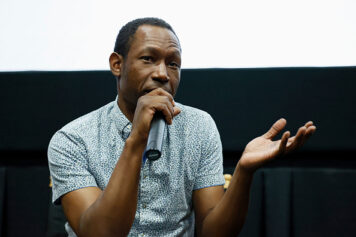High achievers are taking the lead in the battle against mental health issues.
According to the National Alliance on Mental Illness, approximately 1 in 5 adults in the United States experience mental illness each year. I bet that number is far worse for some black men, and likely always has been.
Back in the day, long before the Internet was revealed to the public, one of my favorite activities was going through old family photos. The older the better. I would pay especially close attention to the ones that were in black and white. The men were stern-faced and battle-hardened.
Sometimes you could see the crust of the soil that they toiled in still clinging to their hands and clothing. This is where I would cobble together my initial thoughts on being a strong black man. I thought it meant to be tough on the exterior and fully capable of carving out a living no matter the resources, but it also was apparent that none of those male ancestors in those old photos smiled very much.
Of course, at the time I knew next to nothing about what it was to live in a racist world, especially back then, nor of all the economic, sociological and institutional pitfalls and snares that scoured the landscape, ensnaring many. Now, as an adult, I see exactly the sorts of things that pained these men.
In a society that is as about as chauvinist and misogynist as you can get in the western world, one that claims the male alone is suitable to lead a household, black males who struggle to live up to fairy tale standards and inevitably find themselves trapped within their own expectations. Expectations that life’s pressures would ultimately cause to collapse in many cases. However, this paradigm certainly isn’t exclusive to brothers. Not in the least.
Everyone has their own cross to bear, but emotional and psychological trauma appear to be exponential. Meaning that one thing exacerbates another. The static yet ever-changing nature of contemporary racism is certainly a catalyst for depression in and of itself. However, circumstances that are unique to the individual make things that much worse.
Additionally, there is much recent research that suggests the effects of trauma can be inherited, manifesting themselves in some form generations later.
Today, there are more black millionaires in the United States than there have been at any other time in the nation’s history. Despite that, the institutional pitfalls and evolving racism is a bane upon the ability for every black person’s ability to garner life, liberty and the pursuit of happiness.
We’ve all heard Dwayne The Rock Johnsons life story before; the son of a professional wrestler who was urged not to enter the family business. A chiseled sure shot football player who couldn’t beat out the competition at the University of Miami, and who famously had less than 10 dollars to his name before his come up arrived. That seems like enough of a success story last several lifetimes. However, as was revealed in a recent interview, The Rock has had his dark days, too. And he’s not afraid to talk about them.
“Struggle and pain is real,” the star of the upcoming Rampage said told The Hollywood Reporter. “I was devastated and depressed. I reached a point where I didn’t want to do a thing or go anywhere. I was crying constantly.”
In his lengthy Instagram post from Feb. 1, Johnson revealed his mother tried to kill herself by walking into oncoming traffic as he watched. He was 15.
“Not your typical scene on our comedy #ballers, as I cracked a beer open toasting my character’s brother, William who committed suicide. Got me thinkin’ though bout how many of us have been affected by suicide of our friends, family. Struggle and pain is real. We’ve all been there on some level or another. My mom tried to check out when I was 15. She got outta the car on Interstate 65 in Nashville and walked into oncoming traffic. Big rigs and cars swerving outta the way not to hit her. I grabbed her and pulled her back on the gravel shoulder of the road. What’s crazy about that suicide attempt is to this day, she has no recollection of it whatsoever. Probably best she doesn’t. Shits of a scene to shoot – didn’t like it – but it did reminder that we always gotta do our best to really pay attention when people are in pain. Help ’em thru it, get ’em talkin’ about the struggle and remind ’em that they’re not alone. We got lucky that day when I was 15 and that ain’t always the case.”
“Big rigs and cars swerving outta the way not to hit her. I grabbed her and pulled her back on the gravel shoulder of the road,” Johnson wrote. “What’s crazy about that suicide attempt is to this day, she has no recollection of it whatsoever. Probably best she doesn’t.”
The Rock, whose heritage is African American and Samoan, grew up dealing with many of the same pitfalls as others who identify similarly.
The Rock isn’t the only famous brother who’s been speaking out about depression and self-care as of late. NBA star DeMar DeRozan has been very candid about his own battle with depression as of late, joining fellow NBAers Kelly Oubre and Kevin Love as the most recent hoopers to admit they deal with depression.
Former WNBA stars Chamique Holdsclaw and Lauren Jackson have revealed their struggles with depression and mental health as well. We all very much have our respective loads to bear. However, it appears as if being honest and open about our battles can not only be therapeutic on a personal level but can help others as well.
But that requires two things many brothers would prefer not to engage in; candor and introspection.



